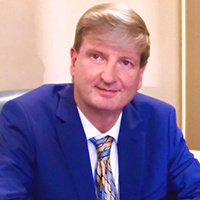Spencer White Collar Crime Lawyer, Wisconsin
Sponsored Law Firm
-
 x
x

Click For More Info:
-
The Law Offices of Richard L. Cooper, P.A.
848 Brickell Avenue Suite 800 Miami, FL 33131» view mapDWI/DUI, Drug Trafficking, Felony Nationally Ranked Top 40 Under 40
With Richard L. Cooper you can expect a trusted confidant who will work diligently to fully understand your case and determine a road map to help you regain control of your life.
800-756-2781
Not enough matches for Spencer White Collar Crime lawyer.
Below are all Spencer Criminal lawyers.
Peter C. Lloyd
✓ VERIFIEDDivorce & Family Law, Criminal, Traffic, Child Custody, Child Support
Attorney Peter Lloyd is an experienced lawyer practicing law in the Central Wisconsin area. He limits his practice to specific areas (family, criminal... (more)
Jonathan D. Sherman
Criminal, Personal Injury, Divorce & Family Law, DUI-DWI
Status: In Good Standing
FREE CONSULTATION
CONTACTFREE CONSULTATION
CONTACTJonathan A. Barnett
Landlord-Tenant, Traffic, Workers' Compensation, DUI-DWI
Status: In Good Standing
William D. Mansell
Workers' Compensation, Personal Injury, Family Law, Criminal, Mass Torts
Status: In Good Standing Licensed: 44 Years
Keith F. Ellison
Criminal, DUI-DWI, Divorce & Family Law, Insurance Malpractice, Accident & Injury
Status: In Good Standing Licensed: 47 Years
Kenneth J. Andraski
Traffic, Mass Torts, Divorce & Family Law, Criminal, Accident & Injury
Status: In Good Standing Licensed: 50 Years
William Drengler
Bankruptcy, Criminal, Divorce & Family Law
Status: In Good Standing Licensed: 48 Years

 Richard L. Cooper Miami, FL
Richard L. Cooper Miami, FL AboutMiami Attorney at Law
AboutMiami Attorney at Law ServicesCriminal Defense
ServicesCriminal Defense

